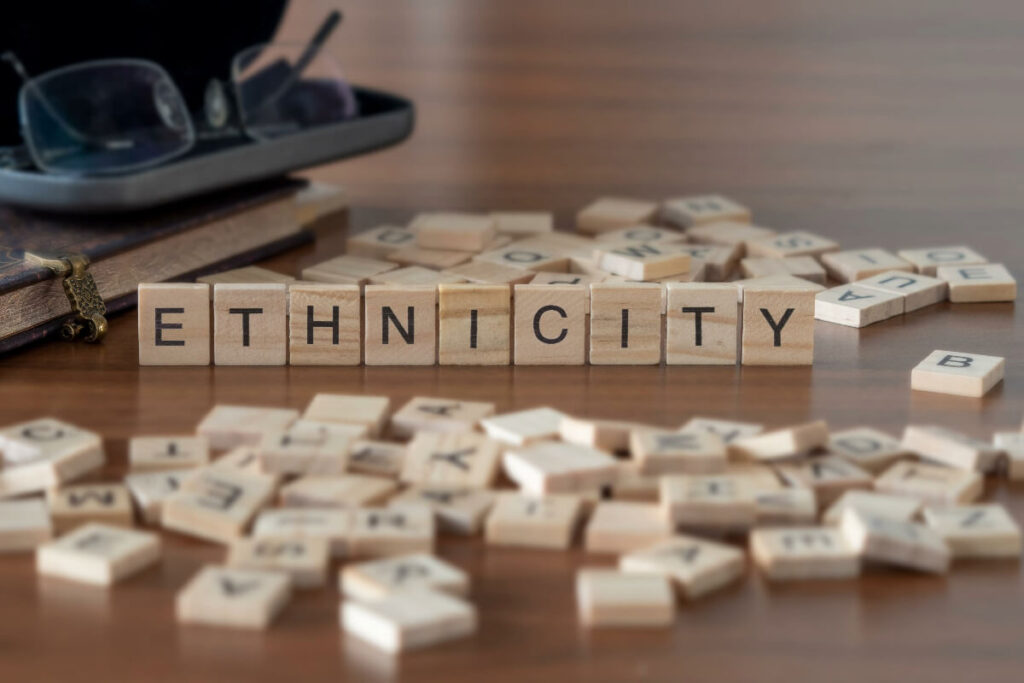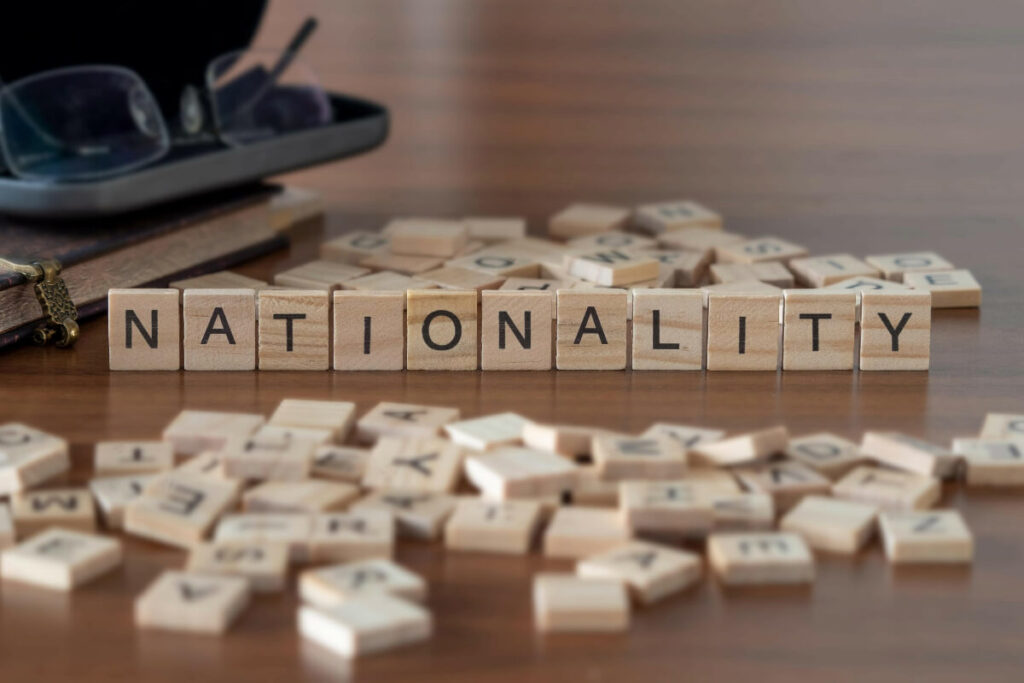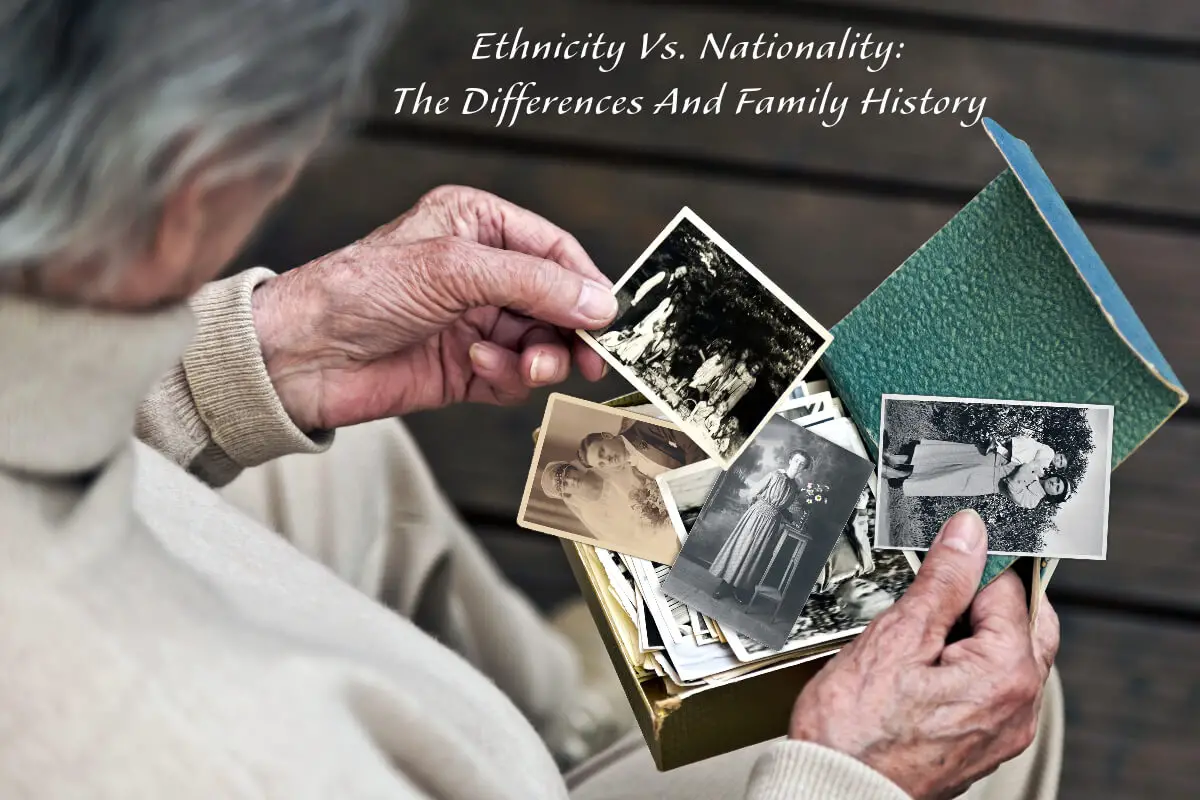If you’re contemplating delving into your family history, it’s crucial to recognize and understand specific terms that play a key role in genealogy. One of the most important distinctions to comprehend is ethnicity and nationality.
Ethnicity and nationality, although sometimes used interchangeably, represent different facets of your identity. In simple terms, someone can be one country’s national while belonging to an entirely different ethnic group. Understanding this distinction enriches your research and provides a fuller picture of your ancestry. When researching your family history, distinguishing between ethnicity and nationality is essential.
Table of Contents
- Ethnicity Vs. Nationality: Understanding The Differences And Why It Matters In Family History
- Definitions Of Ethnicity And Nationality
- Ten Differences Between Ethnicity And Nationality
- Why Understanding This Matters In Family History
- Related Questions
Ethnicity Vs. Nationality: Understanding The Differences And Why It Matters In Family History
Understanding the fabric of one’s identity often involves peeling back the layers of two key terms: ethnicity and nationality. While often used interchangeably, these terms represent different aspects of identity, significantly influencing how we understand ourselves, our families, and our history.
This nuanced distinction becomes particularly important in family history research, as conflating the two can lead to misunderstanding or misrepresenting one’s lineage and heritage. Read on as we dissect the definitions of ethnicity and nationality, delve into ten key differences, and explore why understanding these terms is crucial for family history research.
Definitions Of Ethnicity And Nationality
While ethnicity and nationality might appear to be similar terms, they have distinct implications and meanings that separate them. To truly grasp the differences between these two concepts, we first need to dive into their definitions.
Ethnicity Defined
Ethnicity refers to a group with a common cultural background, including language, religion, ancestral origin, and shared customs or traditions.

Ethnic identity is often passed down through generations, regardless of geographical location. People who identify with a particular ethnicity may have a sense of shared history, beliefs, and practices that differentiate them from others.
Nationality Defined
On the other hand, nationality refers to the legal relationship between an individual and a nation-state. It denotes membership in a particular country, usually marked by citizenship.

Nationality is often dictated by the place of birth, naturalization processes, or legal agreements and does not necessarily imply a shared culture, language, or ancestry.
Ten Differences Between Ethnicity And Nationality
Even though ethnicity and nationality may have some similarities, they have some distinct differences. Read on as we explore 10 differences between ethnicity and nationality
1. Basis Of Identification
Ethnicity is rooted in shared cultural traits and ancestral lineage, whereas nationality is determined by citizenship or allegiance to a specific nation.
2. Fluidity Vs. Legality
Ethnic identity can be fluid and adaptable, influenced by personal choices and experiences. Nationality is often rigid, primarily defined by legal parameters such as birthright or naturalization.
3. Cultural Vs. Political
Ethnicity is about cultural unity, shared traditions, and common history. Nationality is about political affiliation and civic responsibilities.
4. Inclusion Vs. Exclusion
While ethnicity can be inclusive, allowing individuals to identify with multiple ethnic groups, nationality tends to be exclusive—you generally can’t be a legal citizen of multiple countries without exceptional circumstances.
5. Internal Vs. External Recognition
Ethnicity often depends on internal recognition among group members. Nationality requires external recognition by the government or international bodies.
6. Homogeneity Vs. Heterogeneity
Ethnic groups often share a relatively homogeneous culture and history. Nations can be ethnically heterogeneous, containing diverse cultural groups within their borders.
7. Geographical Boundaries
Ethnicity can transcend geographical boundaries, whereas nationality is usually tied to a specific geographical territory.
8. Language And Religion
Ethnicity often involves shared language and religious practices. Nationality does not necessarily imply a shared language or religion.
9. Transmission
Ethnicity is often passed down through family ties and cultural traditions. Nationality can be acquired or altered through legal means.
10. Historical Impact
Ethnicity can factor in historical alliances and conflicts based on cultural similarities or differences. Nationality can lead to political alliances or conflicts, often irrespective of ethnic ties.
Why Understanding This Matters In Family History
When doing your family history research, it is essential to understand some distinct differences between ethnicity and nationality. Here are some reasons why it matters.

- Avoiding Assumptions: Mistaking ethnicity for nationality can lead to incorrect assumptions about an individual’s cultural background, which can be misleading in family history research.
- Cultural Preservation: Understanding ethnicity can help preserve the cultural aspects of one’s heritage, such as traditional practices, languages, and stories.
- Legal Documentation: National records, such as censuses and citizenship documents, provide different kinds of information than cultural or ethnic records, like oral histories or religious texts.
- Mapping Migration Patterns: Knowing the difference can help you understand why families might have moved from one country to another yet maintained their ethnic identity.
- Intermarriages: Understanding both concepts can provide insights into marital alliances that might have been based on either ethnic unity or the benefits of dual nationality.
- Identity Complexity: It provides a richer, more nuanced view of your ancestors’ identities, considering their cultural background and legal affiliations.
- Historical Context: It can help make sense of historical events that influenced your family’s decisions and circumstances.
- Ethnic Vs. National Conflicts: Recognizing the difference can offer insights into any conflicts or alliances your ancestors may have faced due to their ethnic or national identities.
- Personal Identity: It contributes to your self-understanding, affecting how you perceive your place in the world.
- Connecting With Relatives: This understanding can facilitate more profound connections with distant relatives who might share your ethnicity but not your nationality, or vice versa.
In the tapestry of family history, the threads of ethnicity and nationality are interwoven yet distinct. They contribute to the richness and complexity of our identities and help to tell a more complete story of who we are and where we come from.
Understanding the intricate differences between these two terms is a scholarly exercise and a journey into the depths of one’s heritage, fostering a fuller appreciation of our familial pasts.
The Hummel Family is a website all about Family History research. We focus on Swedish, German, English, Scottish, and American Genealogy. We also discussed Asia and China, as we had ancestors who spent many years in China.
You are welcome to join us and become part of our community by signing up for our FREE newsletter, The Hummel Family; sign up by clicking here.
Check out our Youtube Channel, Family History Buzz, by clicking here.
Related Questions
How Reliable Is The Genealogy Website FamilySearch.org?
FamilySearch.org is a very reliable genealogy website. It is considered one of the best genealogy-focused research websites in the world. One of the best things about this is that the website is free for everyone, regardless of affiliation or religion. The website has millions of genealogy records, which have been updated daily. It is also a collaborative website, and you may find relatives ready to work on your family line so you can tap into the work they have already done.
You can discover more by reading How Reliable Is The Genealogy Website FamilySearch.org? by clicking here.
About Setting Up A Free Ancestry.com Free Account
Setting up an Ancestry.com free account is something that many people are interested in, whether they have a basic curiosity about their family tree or they’re looking for more in-depth research. Creating an Ancestry Account is the first step in getting started with Ancestry, providing you with access to Ancestry’s billions of historical records.
You can learn more by reading About Setting Up A Free Ancestry.com Free Account by clicking here.
What Is The Purpose of Genealogy?
Genealogy aims to study family history and trace our lineage or ancestors. Genealogy’s purpose goes far beyond our ancestors’ dates, names, and places. This is because you learn more about your family and yourself as you do your genealogy. Genealogy helps unite and link families as you discover things about your family that you did not know.
By clicking here, you can learn more about Genealogy by reading our blog, What Is The Purpose of Genealogy?

